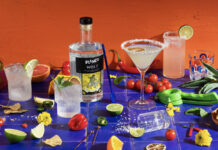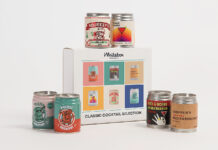2023 resulted in legislation that strengthened gains from previous years. States such as California and Maryland renewed DTC privileges for in-state distillers, and cocktails-to-go were extended or made permanent by numerous states. A couple of states created self-distribution privileges for distillers and enhanced retail privileges.
On the negative side, bottle deposit bills were introduced in many states. The California bill will be problematic, as it will impact labeling requirements for anyone wanting to sell into California.
2023 represents the industry moving forward positively; however, the potential cost of bottle deposit bills could become worrisome.
California and Maryland DTC Shipping Laws Extended
California signed legislation into law (AB 1088) which allows craft distillers to engage in DTC shipping. As California is the country’s largest market, this represents a great victory for the spirits industry.
However, there are significant limitations in this bill. DTC shipping is limited to California distilleries that produce fewer than 150,000 gallons. The bill extends to January 1, 2025, which means it only lasts through this year. The law limits shipping to not more than 2.25 liters of spirits per day. Additionally, the shipper is required to mandate that the common carrier obtain adult signature, and the shipper must maintain adequate shipping records.
Maryland (SB 448) extended its in-state distillers’ shipping bill until June 30, 2024. This bill allows an in-state distiller to ship the equivalent of 18 standard-size (750 ml) bottles during the calendar year. Unfortunately, the bill’s expiration date was changed on amendment from June 30, 2025 to June 30, 2024. This shortens the privilege period and expedites the sunset date for DTC shipping privileges.
These passed laws took on extra significance because of a federal court decision that denied Washington’s motion to dismiss a challenge to distiller shipping laws that allow in-state distillers to ship, while denying this same privilege to out-of-state distillers. The judge ruled Washington is required to provide concrete evidence to justify discrimination.
Unfortunately, attempts to pass DTC distillery shipping failed in Delaware, Illinois, Maine, New York, and Texas.
Direct-to-Retail Privileges
Bills were signed into law in Maryland (SB 431) and Nebraska (LB 376) which enhanced self-distribution privileges.
Under SB 431, Maryland allows producers below 100,000 gallons to self-distribute no more than 27,500 gallons. Producers with a Class 9 Maryland limited distillery license would be allowed to obtain a Class 8 liquor wholesaler’s license with certain privileges, including selling its product to a licensed retailer.
Nebraska’s legislation would allow only the employees of microdistilleries (a distillery producing in aggregate 100,000 gallons or fewer) to distribute up to 500 gallons of product per distillery annually to retailers.
Bottle Deposit Bills
Especially with the enticing prospect of DTC spirits shipping, distillers should be concerned with the impact of bottle deposit bills. If a distillery sells into the California market presently, it needs to be prepared for changes coming its way. Spirits sold after July 1, 2025, will need to affix language to their labels conforming to California bottle deposit labeling requirements as a condition for doing business there (SB 353).
Any bottle sold into California must be labeled “CA Redemption Value,” “California Redemption Value,” “CA Cash Refund,” “California Cash Refund,” or “CA CRV.” Further, there are minimum requirements for the label’s height. All spirits producers selling product in California should register with the CalRecycle program as reporting requirements started on January 1, 2024.
Other states introduced bottle bills, and Maine passed a bottle bill reform, but no other state law has the impact that California does on the marketplace.
Cocktails-to-Go
Cocktails-to-go is here to stay, with numerous states endorsing the cocktails-to-go movement. In 2023, Michigan eliminated the 2026 sunset provision for cocktails-to-go and made it a permanent privilege (SB 141).
Unfortunately, in other states, cocktails-to-go provisions were temporarily extended and not made permanent. Illinois extended cocktails to-go until July 31, 2028 (SB 89), Massachusetts extended privileges until March 30, 2024 (HB 58), and Washington (SB 5448) extended these privileges until July 1, 2025.
More Privileges for Distilleries
2023 saw positive developments for distilleries across the nation, as states expanded distilleries’ rights and increased access for spirits sales.
In California, the prohibition against craft-distilled spirits manufacturers selling other alcoholic beverages was lifted (SB 269).
Texas expanded rights for distillers by allowing them to sell four 750 ml bottles to consumers within a 30-day period, which increased the level from two 750 ml bottles (SB 2284). Additionally, Texas allows operating agreements between distillers and other alcohol permit holders that allow the alcohol permit holder to perform activities on another distiller’s premises, including manufacturing distilled spirits, selling finished products, and selling denatured alcohol in bulk that was produced by the permit holder on the other distiller’s premise (SB 60).
Louisiana enacted a law establishing market access parity between distilleries and wineries by allowing distillers to sell their product to consumers at farmers markets and similar venues (HB 647).
Montana’s new laws would allow a limited exception for licensed distillers to hold retail licenses (HB 305) and would increase daily sales to 4.5 liters per day, up from 1.75 liters (SB 209).
Wisconsin passed a bill into law that would permit product manufacturers to sell other liquor products at their site, which would provide full retail privileges (SB 268).
Conclusion
2023 demonstrated that efforts for enhanced market access for distilleries was a success. We are seeing progress and have reason to be optimistic. The trends are positive, and I expect more legislation in 2024 to enhance distilleries’ market access.
Previous to the pandemic shut-downs, spirits DTC bills were dead on arrival. Now they are being seriously considered, as evidenced by progress in California and Maryland, which both extended DTC shipping for in-state distilleries this year. Cocktails-to-go is now widely accepted and not a temporary COVID-based privilege.
The only worrisome trend gaining traction is bottle deposit bills. If the ultimate goal is to achieve parity with wine, one hopes the California approach does not spread to other states. Although we are seeing many great signs, the industry must remain vigilant.








